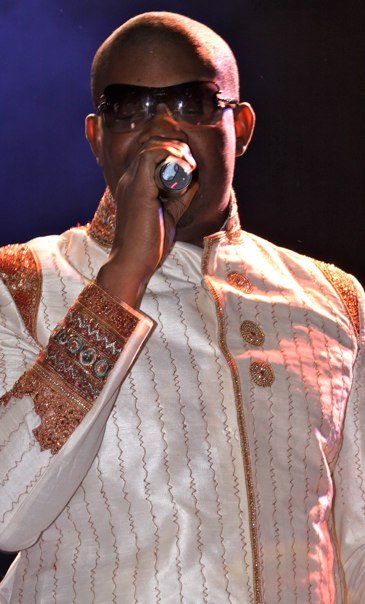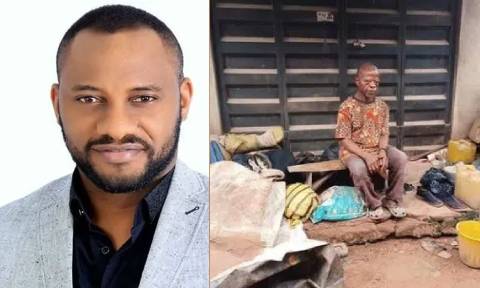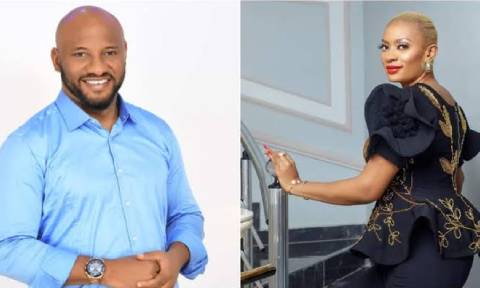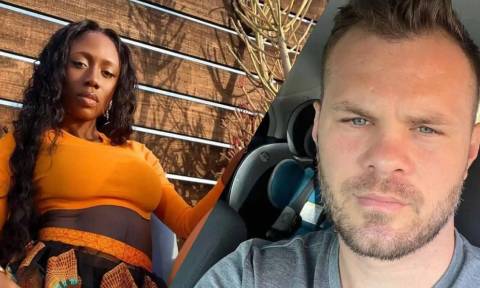
… Paul Tavershima Apel popularly known as “Papel”, is a native of Benue state. A non-linear editor, scriptwriter, producer and director, Paul, who has two movies to his credit (‘The Bond’ and ‘90Ninth Day’), has also featured in various movies and TV series. The multi-talented actor spoke to ANTHONY ADA ABRAHAM about his movies and other issues.
How did you come about acting?
I just wanted to make a movie after the first one. I haven’t done a movie for two years now. I considered what I have and the kind of people around me before I started writing. I decided to sell the story to the actors. I had no financial back-up, so I had to ensure that I put that in place, to make something the people will love. The truth is, I just wanted to make a different movie.
I am an entertainer, film editor, actor, musician and movie producer, because mechanically, I can fix things like car engines, bike engine and bicycles. I also do all kinds of painting. I also played basketball to the state level and played football for my school way-back.
At a point I realised I could play the guitar very well and also sing along. I play drums and the keyboard. Once, music took my friend and I to Lagos in search of greener pastures. When we got to Lagos and I discovered that things were a bit rough for musicians there, I decided to change my course. That was how I went to NTA and started production work. It was from there that I met a lady called Iheanacho, who asked me if I had ever acted before. I answered in the negative, but told her that I had done something on stage way-back in school and that if given a chance I could do well. She tried me on ‘Tales by Moonlight’ and was amazed at how I performed on my continuity. I did about 18 episodes of ‘Tales by Moonlight’ and also featured in many other stories. From there I would help them to carry their equipments, and with my technical background I helped fix the cables. I also started taking the equipments for production and at the same learning how to use the camera on location.
At a point, I got a role in ‘Winds of Destiny’. I began as a production assistant, and also played the role of ‘Mallam Garba’. At a time, I was made the productions manager, and so I was liaising with the editor and the people on location. From there I developed interest in editing and Baba Fash, I don’t know where is he now, gave me an opportunity to edit on the NTA systems.
Presently, do you combine acting with singing?
Back in the days, I was with the group Dark and we had a demo. There were four of us: myself as Raz Paul, Balvins, Codera and Juju, who is still into music. Unfortunately, we didn’t go far with it, though we did something with Daddy Showkey and it ended right there.
I am seriously considering going back to music. Few days ago, I was telling my wife that my father taught me how to play the guitar as he had done in his own time. So, I told my wife that my father will be happy to hear me sing (I actually sang in the choir, but somehow I lost interest in it and went into videos). I produced and programmed the soundtrack for my movie, ‘The Bond’. So, music thing is one thing I would do and feel that I have fulfilled my father’s dream. I think I should be happy that I did it, and if my father is watching, he will say, “yes, that’s my boy”. Producing movies is just a facet of my personality.
As a producer, how would you rate the movie industry, based on the issue of piracy?
Things are changing. If you do not do make a movie that will meet current tastes, you are in trouble. Gone are the days when you make a movie for the market. You make a movie and take it to the market to sell or to cinemas for people to watch and enjoy over a long time. True, we are the third largest movie-making nation, but if it is about the best, what about South African movies? Due to the influence of the foreign guys there, the production is far better and you might not know the difference between their products and those of Hollywood. But, when you talk about dishing out movies, Nigerians do that more. For you to do that, you have to work on your script very well. There are a lot of good movies in the country today. Mine is a thriller, it is a bit different, but it tells you that we have chosen ourselves.
Piracy is a two-way thing. Sometimes, I think the pirates are the guys doing the main thing, because if the movies are available, that is, if the marketers are able to mass-produce and his target is to sell 500, 000 copies and he succeeds in taking it round and the movie sells, then piracy is reduced. But when the demand is high and the product is less, then the pirates can sell. The second aspect is that, when Nigerians want to buy sometime cheap, all they do is make few copies of the original. If they are going for N500 or N1000, for instance, they are original, you would get the quality sound and equally get the cheap one which is N100 or N150. Nigerians will buy the cheap one and say, “After all, it’s the same movie”. Our mentality also matters. If the marketer mass-produces and distributes, the prices will surely reduce.
As a musician, would you say you have achieved a lot?
I have achieved a lot, because I was ‘nobody’. I am from a large family, but my father died when I was only 19 years old. That was the year I met my wife. I went to Lagos in an ‘attachment’ bus and slept on a balcony for months. We used to go to night clubs to sing, so as to make money to survive. Later, I went to the NTA to beg my way through to act. At a point, I left because I wanted to be on my own. I went ahead to work in the studio as an editor and I was paid percentage. From there I started out with a fairly used computer, table, chairs, camera and TV. Later, I got a job with Civic Studios in Abuja, but later pulled out to start my own with support from a friend.
For me, having a staff strenght of six and four modern, up-to-date systems, three cameras, two HDV cameras, a steady cam, two cars, three power bikes, a wife and two boys, and being able to pay my house rent, I can say I have achieved a lot.
What do you think the future hold for the movie industry in Nigeria?
The future is bright, thanks to Silverbird for bringing back the cinemas. With the right investment, the future can only be bright. I am saying this based on the fact that the cinema culture is a part of everyone. We left it at a point and the Americans continued. Now, we are adopting it again. Those of us who are into the business welcome it and, to tell you the truth, the future is bright.
The industry is growing. Prior to this time, some of my friends left for Europe and America. If they had not left, they would have been big now, because they have something to offer. Our market is becoming much better, and our people are beginning to accept our productions. If you go to a party, you will hear Nigerian music rocking the party. People now want to watch Nigerian movies, even if it is of the Yoruba genre, unlike in those days when people always wanted to watch foreign movies. People are becoming proud of what we make here; even the pidgin in our music is now normal. In fact, if you weave it into your music, you may not be able to identify with the people.
But we need to do more; that is why I am coming out a bit different, because I realised that if I speak the Igbo language, an Igbo man would understand me; if I speak the Tiv language, a Tiv man will understand me; if I speak the Idoma language, the Idoma man will understand me and if I speak the English language, the English man will understand me. Now, movies have a variation of languages. Considering that there are documentary, sports and movie filmmakers, the way you tell the story in a movie is different from that of the drama.
We are doing dramas and branding them ‘home videos’. If you watch movies shot years back, you will still get the feel of what a film is, but if you look at what we have as home videos now, it’s simply drama. When you see a movie with a ‘language’ coming from South Africa (for example, the Mandela apartheid movie), everyone goes for it, because they know what to expect. I spoke that ‘language’ in ‘The Bond’, but I can assure you that in my next production, that ‘language’ will be pronounced, because I now understand the depth of the field, and the kind of shots that makes ‘a film look like a film’, other than just putting the camera in front of the characters.
The film maker is a make-belief kind of person, so if I expose myself, my shots and my set, I am going to make a mess of the ‘language’. That is why I said that we are not doing enough. How can you shoot a movie, treat the characters and score in four days and expect a miracle? If you give time to production, you can tell a story that can go places and if the ‘language’ is understood, you can take it to Hollywood, and right away, they will recognise it as a movie.
You see, the Americans have effect-inputing equipment; you can not tell your story without these equipment and expect to speak the same language. We can, actually, tell the story, because we have the cameras. It is just that we have to put more time into production of our movies.
What should those who have been following your movie expect from you?
They should expect a lot. The next movie will be big. I don’t like doing a movie which, for example, if you enter into a restaurant, you see just two people watching. I had to do a small film like this because of the budget. If I have a huge budget, brother, I am going to do a great picture, one which would be very much akin to real life.
What is your message?
Prepare, I am coming. Expect something good from me. For the younger ones who want to go into this kind of business, you must have the passion, because that is what will drive you into it.
I am just trying to make my way through the society and become a name people can reckon with. I want to be a person whose personality can open a door for someone else. I want to touch lives and connect to emotions through movies and, of course, reach out to many as God will enable me through what He will bless me with. This is the reason my wife and I will want to be a couple who can touch many other children positively.


















